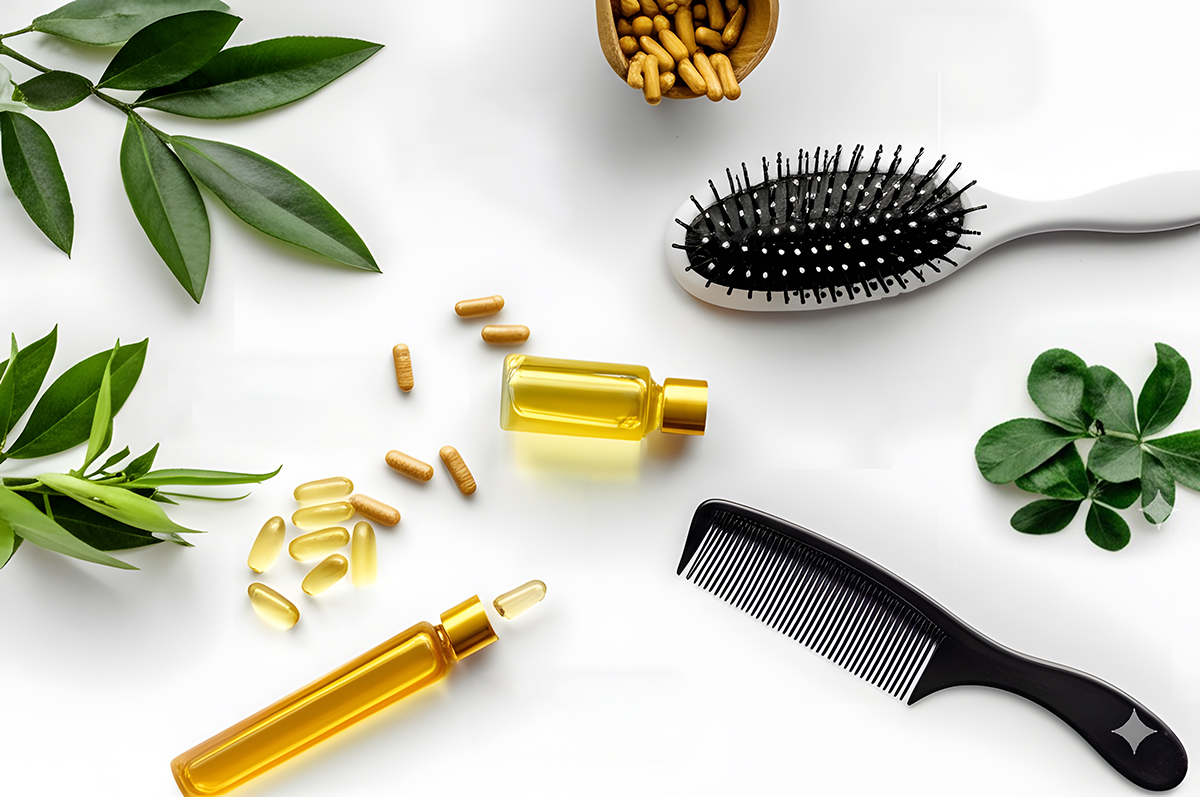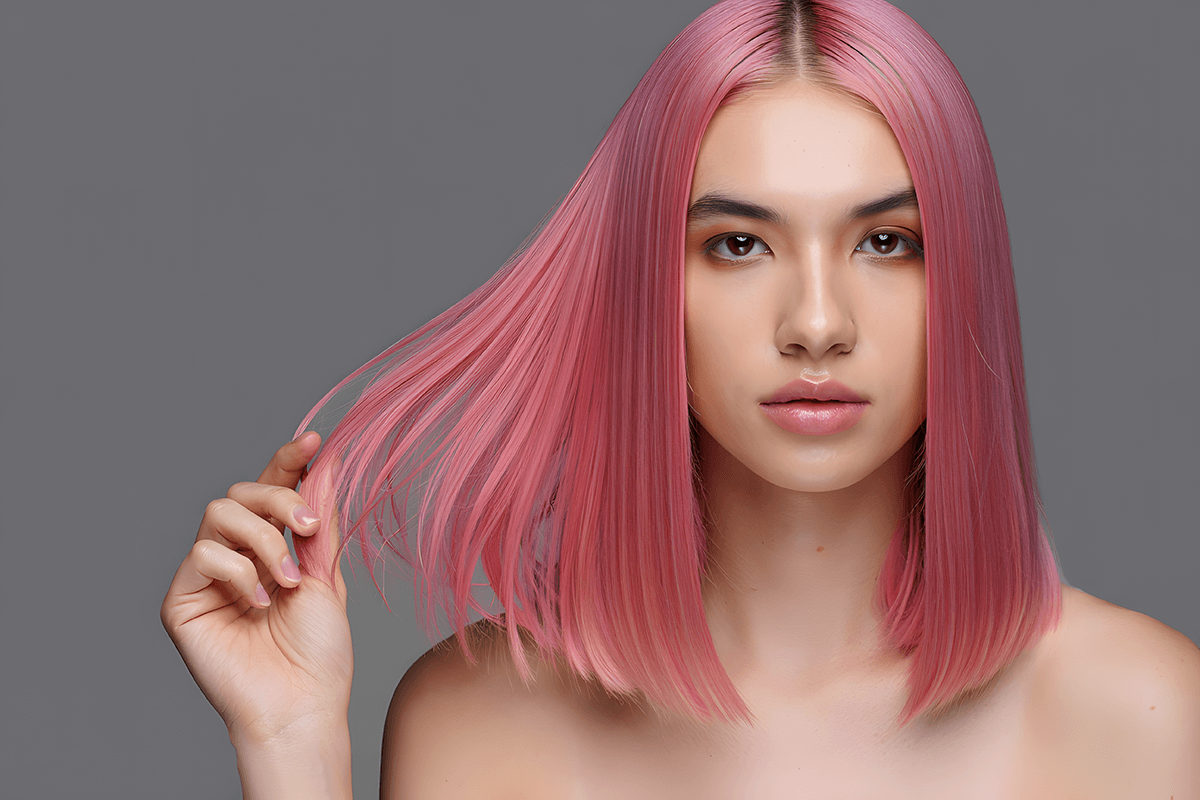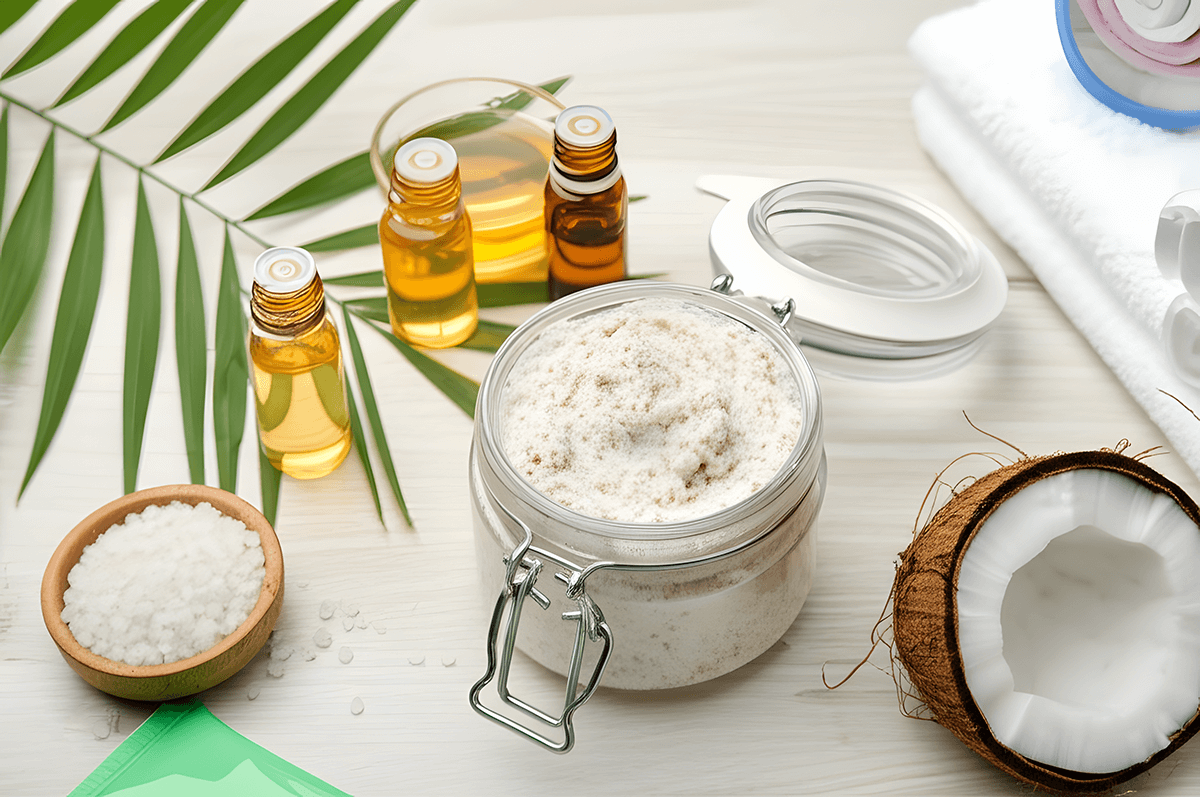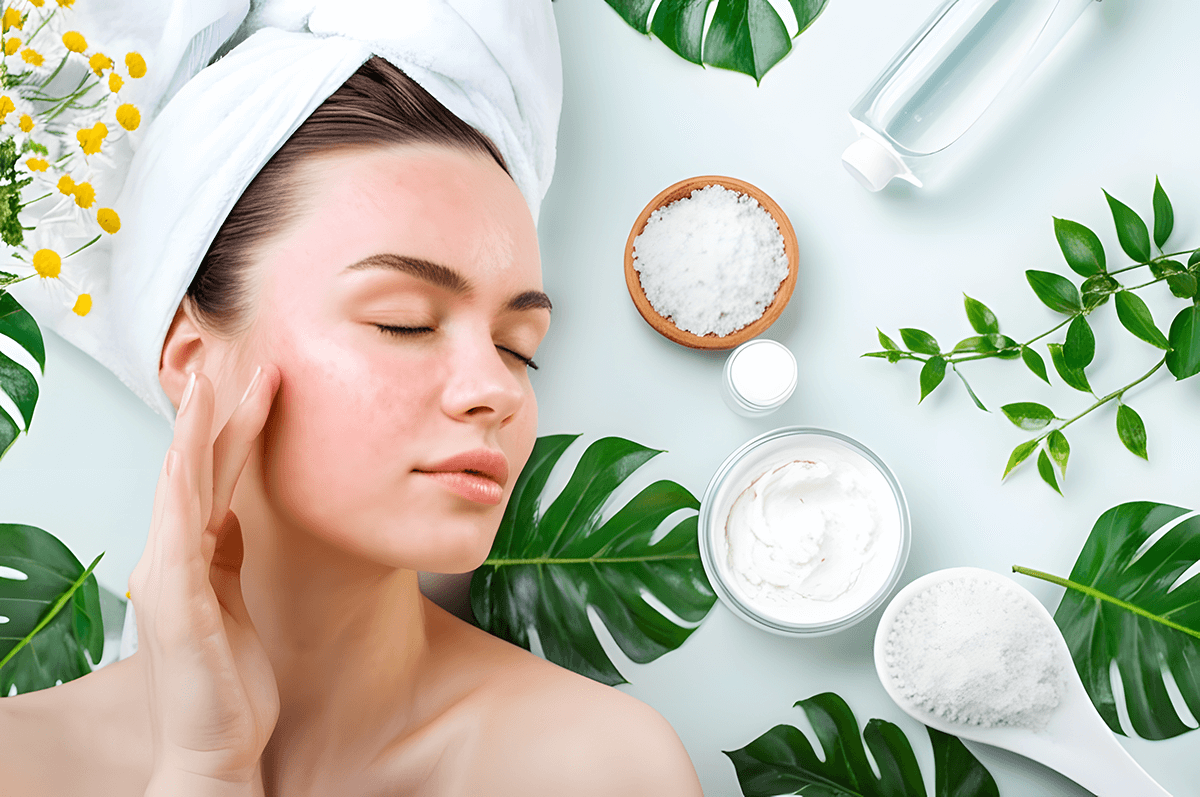As we age, many of us experience changes in our hair, particularly after the age of 30. Hair thinning, hair loss, and decreased volume are common concerns that can be both frustrating and emotionally challenging. This age-related thinning can be caused by a variety of factors, including hormonal changes, stress, nutritional deficiencies, and lifestyle habits.
Fortunately, modern hair care science has made significant strides in developing effective ingredients that can help combat thinning hair. If you’re looking to revitalize your hair and restore its fullness, certain ingredients can help nourish, strengthen, and protect your strands. This article will break down the top five ingredients you should include in your hair care routine if your hair has become thinner after 30.
1. Niacinamide (Vitamin B3)
What Is Niacinamide?
Niacinamide, also known as Vitamin B3, is a powerful antioxidant that has gained recognition in both skincare and hair care for its ability to improve skin texture and support the overall health of the scalp. It’s primarily known for its anti-inflammatory properties and its ability to regulate oil production, but it also has profound benefits when applied to the scalp and hair.
How Niacinamide Helps Thinning Hair
As we age, the scalp’s ability to support healthy hair growth declines. The skin on the scalp becomes thinner and loses its elasticity, which can affect hair follicles and hair growth cycles. Niacinamide works by:
- Improving blood circulation to the scalp: Better circulation allows nutrients to reach the hair follicles, supporting stronger, healthier hair growth.
- Enhancing scalp barrier function: Niacinamide helps strengthen the skin barrier on the scalp, preventing moisture loss and environmental damage.
- Reducing scalp inflammation: Inflammation can lead to hair loss and thinning, but niacinamide’s anti-inflammatory properties can help calm and soothe the scalp, promoting a healthier environment for hair growth.
- Balancing sebum production: Excess oil can clog hair follicles and contribute to hair thinning, but niacinamide helps regulate sebum production, maintaining a balanced scalp.
How to Incorporate Niacinamide in Your Hair Care Routine
Look for hair care products like scalp serums, shampoos, or conditioners that contain niacinamide. Additionally, there are leave-in treatments and scalp oils that can be massaged directly into the scalp to improve circulation and nourish the follicles.
2. Peptides
What Are Peptides?
Peptides are short chains of amino acids that serve as the building blocks of proteins. They are crucial for repairing and regenerating skin and hair tissues. In hair care, peptides help to stimulate the production of collagen and elastin, both of which are essential for maintaining the strength and structure of the hair.
How Peptides Help Thinning Hair
Peptides are known for their ability to:
- Promote hair growth: Certain peptides can penetrate deep into the hair follicles and stimulate growth by increasing blood flow and encouraging new cell regeneration.
- Strengthen hair fibers: As we age, hair tends to become weaker and more brittle. Peptides can help reinforce the protein structure of the hair, making it more resilient and less prone to breakage.
- Enhance follicle health: Peptides support the health of hair follicles by nourishing them and improving the follicular microenvironment, which can encourage thicker, healthier hair.
- Prevent hair loss: By improving follicle health and stimulating growth, peptides can help slow or prevent further hair thinning.
How to Incorporate Peptides in Your Hair Care Routine
Peptides are often included in shampoos, conditioners, serums, and hair masks designed specifically for thinning hair. Look for products that contain copper peptides, biotinyl tripeptide-1, or palmitoyl pentapeptide-4, which are particularly effective at stimulating growth and improving hair density.
3. Plant Keratins
What Are Plant Keratins?
Plant keratins are plant-derived proteins that mimic the natural keratin in human hair. Keratin is a fibrous protein that makes up the structure of your hair, skin, and nails. As we age, hair keratin becomes weakened, leading to thinner, more fragile hair. Plant keratins, like hydrolyzed wheat protein or hydrolyzed soy protein, help replenish and strengthen the hair’s natural keratin.
How Plant Keratins Help Thinning Hair
Plant keratins are beneficial for thinning hair because they:
- Strengthen and repair hair fibers: Plant keratins help rebuild the hair’s protective layer, filling in gaps where natural keratin has been depleted. This leads to healthier, shinier, and more resilient hair.
- Restore hair texture and volume: By improving hair structure, plant keratins help hair appear fuller and thicker, which can create the illusion of more volume.
- Enhance moisture retention: As you age, hair can become dry and brittle. Plant keratins help maintain the hair’s moisture balance, preventing further damage and breakage.
- Provide a natural alternative to chemical keratins: For those looking for a plant-based option, plant keratins offer a cruelty-free and gentle alternative to traditional keratin treatments that may contain harsh chemicals.
How to Incorporate Plant Keratins in Your Hair Care Routine
You can find plant keratins in shampoos, conditioners, and hair serums. Look for products labeled as containing hydrolyzed wheat protein, hydrolyzed soy protein, or other plant-derived keratins.
4. Caffeine
What Is Caffeine?
While you may associate caffeine with your morning cup of coffee, this stimulant has also found its place in hair care products. When applied topically, caffeine can stimulate hair follicles and promote hair growth by increasing blood circulation and blocking the effects of DHT (dihydrotestosterone), a hormone linked to hair thinning, especially in individuals with genetic predispositions.
How Caffeine Helps Thinning Hair
Caffeine works to combat thinning hair by:
- Stimulating hair follicles: Caffeine penetrates the scalp and encourages the follicles to enter the anagen (growth) phase of the hair cycle.
- Blocking DHT: By inhibiting the effects of DHT, caffeine prevents the hormone from shrinking hair follicles, which is one of the leading causes of androgenetic alopecia (pattern baldness).
- Improving scalp circulation: Caffeine enhances blood flow to the scalp, ensuring that hair follicles receive the nutrients and oxygen they need to grow stronger hair.
How to Incorporate Caffeine in Your Hair Care Routine
Look for caffeine-infused shampoos, scalp serums, and hair tonics. These products can be massaged into the scalp and left on for a few minutes before rinsing, allowing the caffeine to penetrate the follicles and stimulate hair growth.
5. Biotin (Vitamin B7)
What Is Biotin?
Biotin, also known as Vitamin B7, is a water-soluble vitamin that plays an essential role in the health of your hair, skin, and nails. It helps convert food into energy and is crucial for the production of keratin, the protein that forms the structure of your hair.
How Biotin Helps Thinning Hair
Biotin is often recommended for those experiencing thinning hair because it:
- Supports keratin production: Biotin promotes the synthesis of keratin, which strengthens the hair and reduces the likelihood of breakage.
- Improves hair thickness: Biotin helps improve the overall thickness of your hair, resulting in fuller and healthier-looking strands.
- Encourages faster hair growth: Biotin plays a role in promoting healthy cell growth, which can accelerate the hair growth cycle.
- Improves scalp health: Biotin can improve the health of the scalp by preventing dryness and flakiness, creating a healthier environment for hair growth.
How to Incorporate Biotin in Your Hair Care Routine
You can incorporate biotin into your routine through biotin-enriched shampoos, conditioners, and serums, or by taking biotin supplements. Biotin supplements are widely available and can be found in daily multivitamins or standalone biotin pills.
Conclusion
As you age, thinning hair becomes an unfortunate reality for many people. However, with the right combination of ingredients, you can combat hair thinning and restore your hair’s strength, volume, and vitality. Ingredients like niacinamide, peptides, plant keratins, caffeine, and biotin can make a real difference in your hair care routine. By incorporating these powerful ingredients into your hair care products or supplements, you can address the underlying causes of hair thinning and give your hair the support it needs.
While no single ingredient can guarantee instant results, a consistent routine with these proven ingredients can help you achieve healthier, thicker hair over time. Don’t be discouraged by age-related hair thinning—embrace these active ingredients and take control of your hair’s health, one step at a time.
Would you like to learn more about other hair care tips for thinning hair or get personalized recommendations? Let us know in the comments!
Hair thinning after 30



